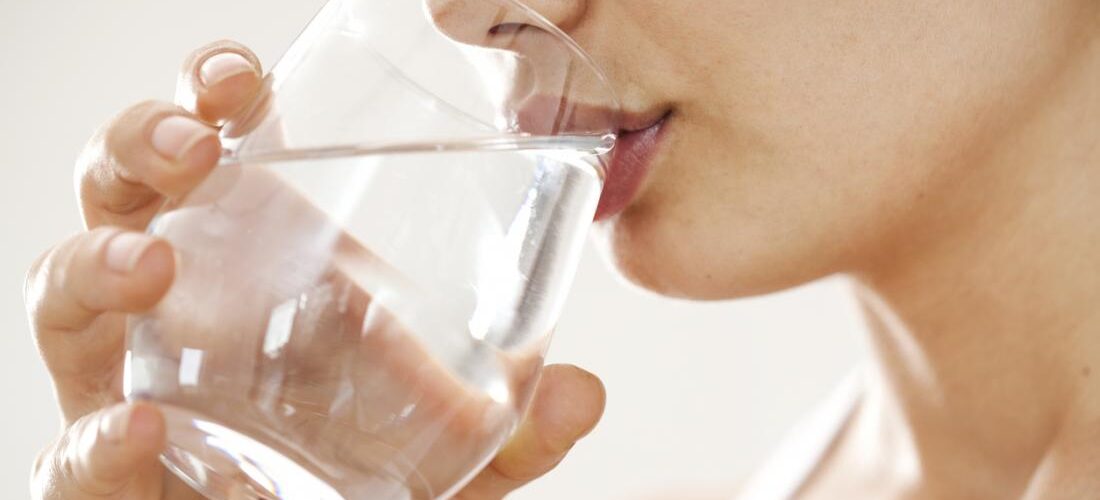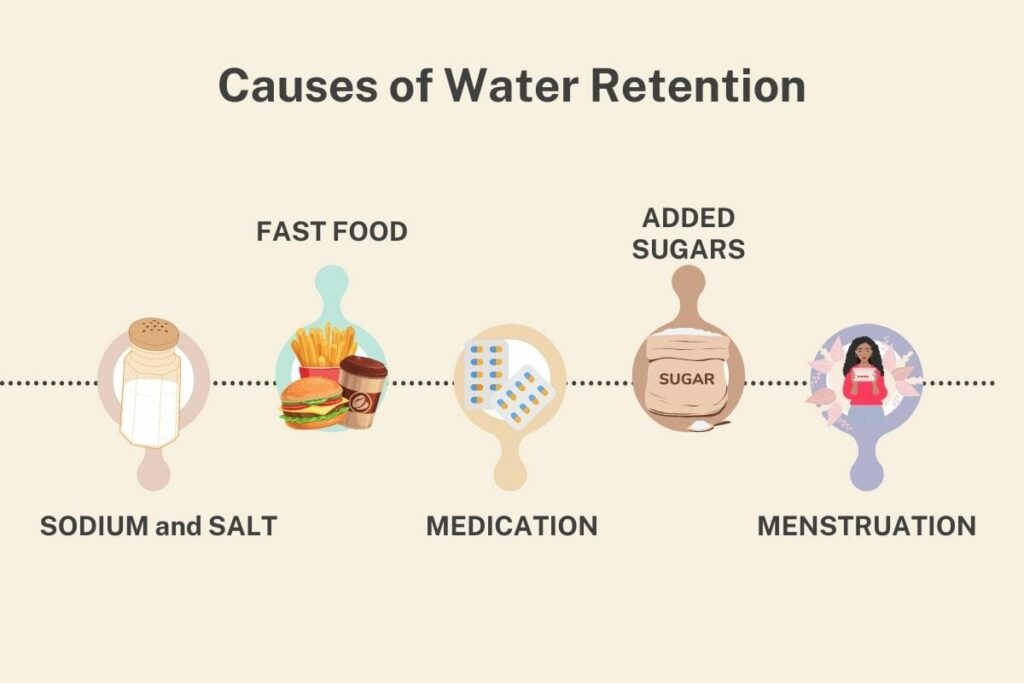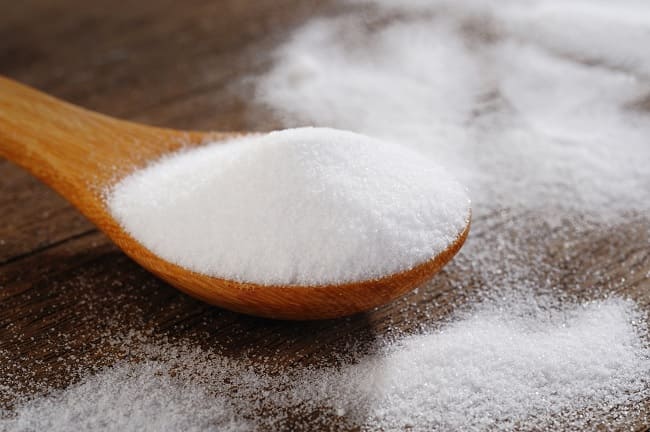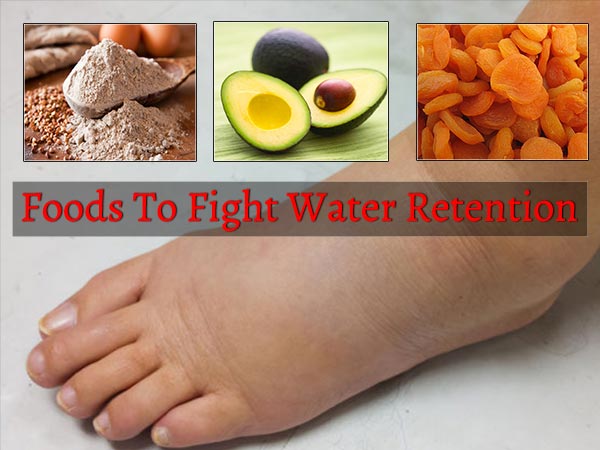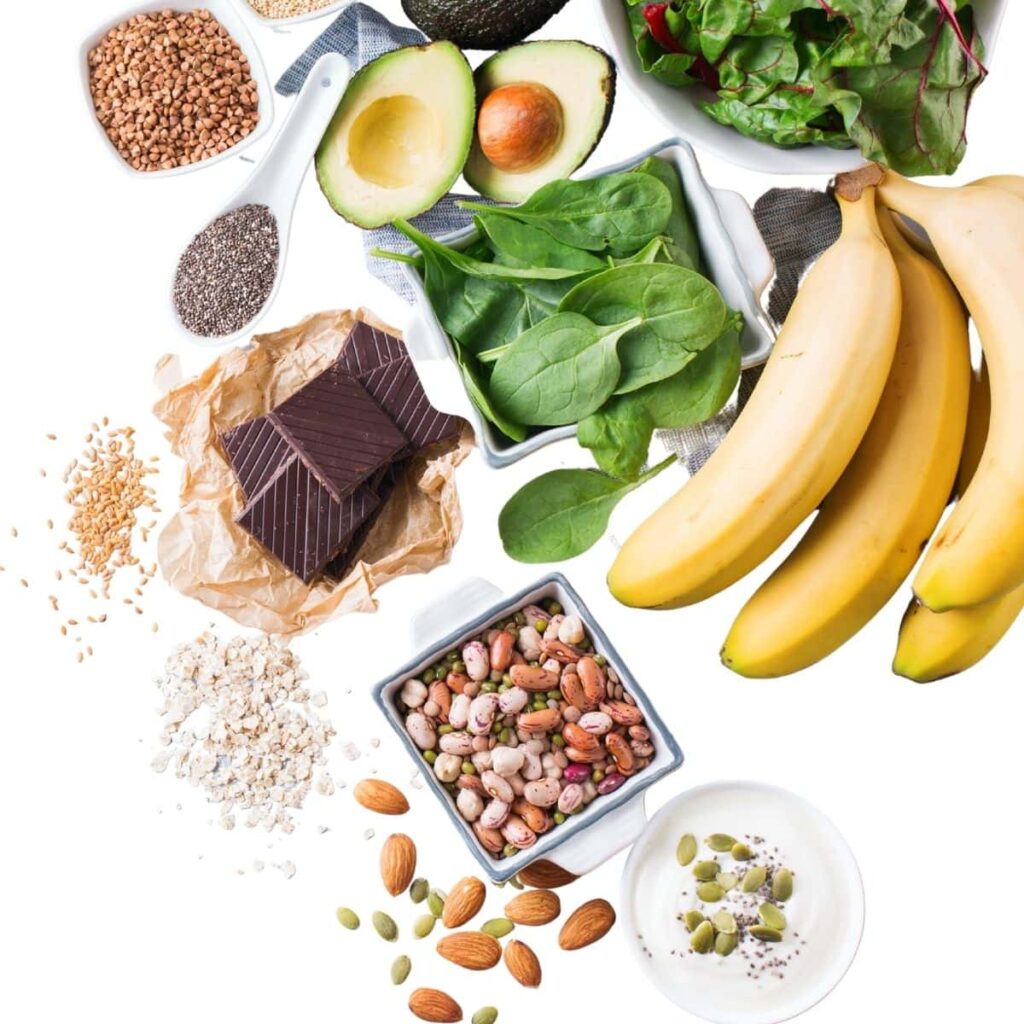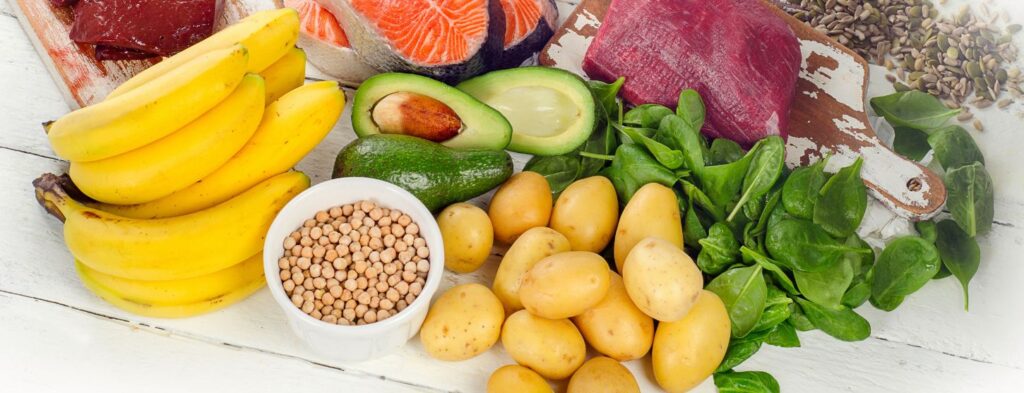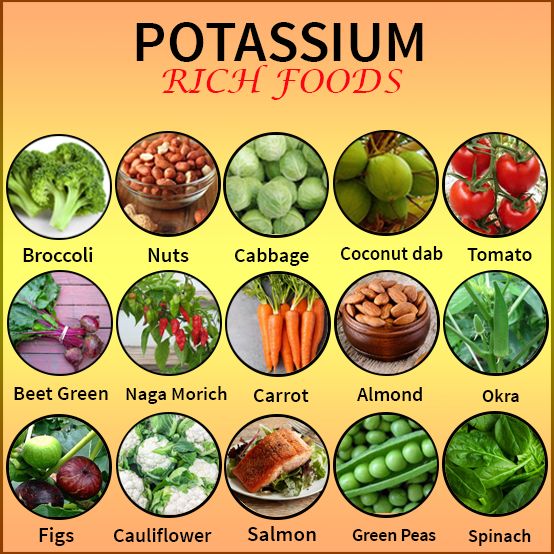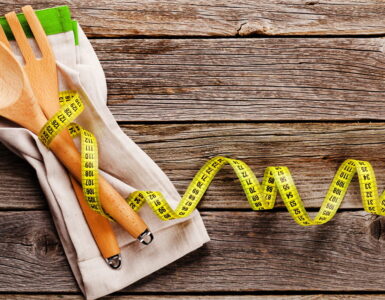Do you get frustrated that dieting doesn’t improve your body; on the contrary, you seem even bigger than usual. Do you feel your feet being tied up to stones after a long day in the office? If you face such difficulties, you may be experiencing water retention, and the ‘not-moving’ pounds may just be the water weight your body doesn’t want to let go of. How to get rid of water retention overnight? How to get rid of excessive fluid with no harm to health? Let’s dig deeper into the topic and help you deflate your body.
Page Contents
What Is Water Retention?
Our body is mainly made of water – approximately 60%. It makes every part of your body: muscles, bones, blood, organs, etc. Sometimes, for different reasons, water balance is shifted to the lacking or exceeding side, and both variants are far from beneficial.
- If you don’t drink enough water during the day, you may feel dizziness, fatigue, and an inability to concentrate. This condition can simply be correlated with drinking something and sipping fluids during the day.
- Sometimes our body fails to get rid of water, and it causes water retention, a condition when your body holds on to water and doesn’t ‘let’ it go. Typically, it’s a temporary state and can be treated without medical help with relatively easy methods.
If you notice that swelling lasts longer than one week, you need to talk to your doctor, as it may be a sign of severe health issues.
Water retention is also called edema. It means that there is excessive water in the body tissue. Fluid retention occurs when there is a problem with the body’s mechanisms to maintain fluid levels. It causes swelling and discomfort.
To help maintain healthy fluid levels, our body mainly uses the circulatory system, the kidneys, the lymphatic system, and hormones. Edema can affect any area of the body due to a variety of reasons.
What Causes Water Retention?
Although edema can cause to swell any part of the body, the most common places are hands, arms, feet, ankles, and legs.
How to recognize swelling?
- Press the foot, ankle, or calf with slow and steady pressure using the thumb.
- If the skin doesn’t retain its form immediately and takes at least several seconds, it shows edema.
Main causes:
Edema happens when the capillary (the smallest blood vessel) leaks fluid. The surrounding tissue starts to build up, and you see swelling.
Minor cases may be caused by:
- Sitting or staying for too long without a change of position
- Too much salty food
- Pre-menstrual signs and symptoms
- Pregnancy
Besides, sometimes the swelling can be caused by specific medication:
- High blood pressure medications
- Nonsteroidal anti-inflammatory drugs
- Steroid drugs
- Estrogens
The most common signs of ware retention are swollen ankles, difficulty losing weight despite dieting, and quick weight gain.
Overweight people tend to keep more water as they consume more calories and higher amounts of sodium which mainly contributes to water retention.
Let’s have a more detailed overview of water retention reasons.
-
Dehydration
This is the most illogically sounding reason. How can lack of water cause its excess?
When the body doesn’t get enough water, it’s under stress and tends to hold onto extra water to compensate for its shortage [1]. Besides, the main body organ responsible for flushing excesses of water and toxins out of the body is the kidneys. And what’s the main propeller for their work? Right, it’s water. If you feel dry mouth, it’s time to sip something.
-
Extra Fluid Consumption
[2] Everything functions well when balanced; same with water. Its lack and excess are harmful to your health. Overhydration happens when the body keeps in.
Overhydration can rarely occur when people drink much more water than their body needs. The result is too much water and not enough sodium (which is an electrolyte). Thus, overhydration generally results in low sodium levels in the blood, which can become life-threatening. However, to exceed the body’s ability to flush water, an adult with normal kidney functioning would have to drink about 23 liters (6 gallons) of water a day on a regular basis, which is highly doubtful.
Overhydration is common among people whose kidneys do not excrete urine normally – due to heart diseases and kidney or liver problems. This condition is regulated with medical treatment.
-
Eating More Sodium Than Your Body Can Handle
Sodium makes our food much tastier and is an essential electrolyte for our health. It regulates extracellular fluids, acid-base balance, and membrane potential, partially together with potassium.[3]
We can overdose on sodium from kitchen salt. It can cause increased blood pressure, arteriosclerosis, edema, hyperosmolarity, and confusion.
Sodium shortages, in its turn, may lead to dehydration, convulsion, muscle paralysis, and general numbness.
Generally, humans require about 300 mg of sodium chloride per day for a balanced sodium level. People who experience intoxication or diarrhea may need to increase salt intake to prevent fast loss of water.
On average, an adult intake of kitchen salt is 9 g per day, which is approximately 4 g of sodium.
People with heart or kidney disease are recommended a low-sodium diet.
-
Food Sensitivities
Water makes up more than two-thirds of the body, and when the water is retained, one might experience a weight gain, which feels like being suddenly pumped. This can result from improper kidney function, hormonal imbalances, and too much sugar (surprise-surprise). When the body gets too much sugar, it’s stored as glycogen. Each unit of glycogen holds 4 units of water. Each unit of which is bound to four units of water. [4]
Another way food may cause water retention is connected with food allergies or food intolerance.
The first trigger is histamine. It is a chemical released as a response to allergenic substances. Histamine provokes the gaps between the capillaries to widen, letting infection-fighting white blood cells to reach the site of inflammation. Simultaneously, more fluid gets into your tissues. It makes you literally full of water.
The other reason is the immune reaction to the foods you eat. It can cause chronic inflammation and suppresses the brain’s ability to receive satiety messages. As a result, you keep eating, and water weight is doubled by excess weight.
-
Thyroid Problems
The thyroid gland produces hormones that play a crucial role in managing fluid levels. If people have health conditions that affect their work, they may experience water retention.[5]
Hypothyroidism, for example, makes body functions slow down and, thus, leads to water retention. It mainly shows up in your lower body – hips, knees, ankles, and feet.
-
Hormone Fluctuations
A common hormone to cause water retention is estrogen, which dominates compared to progesterone production. Estrogen often acts as a fluid retainer, while progesterone is a natural diuretic. Thus, when these hormones are off balance, you may notice bloating.
When estrogen levels are raised, women tend to retain more water than usual, which is typical for pre-menstrual days. This condition is natural and needs no particular medication. You will lose water weight once the menstruation starts.
-
Medications
Certain medications are common causes of excess water retention just as a side effect. Among them
- Medication for high-pressure control.
- Pain killers.
- Chemotherapy.
This trigger of fluid retention must be eliminated only by the doctor.
How To Lose Water Weight?
Before losing excess water, it will be a good idea to understand your fluid needs. How much water do we need to drink based on our weight?
To determine it, follow these steps:
- Take your weight (in pounds) and divide by 2.2.
- Multiply that number depending on your age:
up to 30 y.o. – multiply by 40.
30-55y.o. – multiply by 35.
55+ – multiply by 30.
- Divide that sum by 28.3.
- The total shows how many ounces of water you should drink each day (when divided by 8, result in cups).
For example, a person with 130 pounds, 35 y.e
130/2.2 = 59 –> 59*35= 2068 —> 2068/28.3= 73 ounces or 9 cups of water for a proper balance.
-
Decrease Sodium Intake
Decreasing the level of sodium is an effective way to reduce water retention. [6] Sodium is an essential nutrient; it levels body fluids and keeps muscles and nerves running smoothly when balanced.
Sodium is required in relatively small portions; however, we typically fail to meet the demand over exceeding the limits.
Americans consume about 3,400 mg of sodium per day. However, the Dietary Guidelines for Americans recommends adults limit sodium intake to less than 2,300 mg per day—that’s equal to about 1 teaspoon of table salt!
How to decrease the sodium intake and, thus, reduce water retention?
- Read the Nutrition Facts label – you will be surprised by the hidden salt you buy without even being aware of it.
- Your cooking skills can help you lose water weight. When you can prepare your meals at home, try to avoid packaged foods and instant products. They are a treasure trove of salt.
- Add flavor using species and seasoning, and go lower on sodium.
- Buy fresh meat, poultry, and fish and cook them at home, controlling the salt intake.
- Watch the number of canned vegetables.
- Rinsing the canned vegetables helps to eliminate at least the fourth part of salt.
- Eat fewer salty snacks, which are the sodium concentration – nuts and seeds taste perfect without salt.
- Reduce your portion size – the more food, the more salt, the more chances of fluid retention.
- Choose the cafes and restaurants that offer a self-made dressing so that you control the portion of salt.
-
Cut Back On Refined Carbs
How to get rid of water retention? Eat less sweet and refined carbs. (and with this phrase, you may start thinking that you are reading the wrong article). However, refined carbs aren’t the only reason for excess weight. When you enrich your daily menu with carbs and don’t spend the energy they provide you, it is turned into glycogen. Each molecule of glycogen goes with 3 molecules of water.
When you cut down on carb intake, you use glycogen storage, and thus, the water weight is reduced.
According to the Institute of Medicine’s Food and Nutrition Board [7], adults need about 130 grams of carbohydrates to function each day. However, as with salt, we tend to overeat sugary things. Common carbs to replace are white bread, rice, and pasta. Better go for foods high in potassium or complex carbs.
-
Drink More Water
How to get rid of water retention? Drink water.
Drinking enough water may be a challenge for people who mainly have several cups of coffee and diet coke during the day. How to cope with this task? [8]
- Drink a cup of water after waking up. It will wake your digestive tract and make it ready for food consumption.
- Unsweetened beverages, coffee, and tea also count. About 3–4 cups of coffee will not make you dehydrated. You’ll just need to pee more. It has a diuretic effect; however, it’s pretty mild.
- Avoid beverages with artificial sugar as they may make you bloated and puffy.
- Add more fruits, leafy greens, and berries. They are half made of water and full of vitamins – twofold benefits.
- Learn to carry a bottle or thermos with you. It will help you drink throughout the day without forgetting about it.
-
Take Supplements
Among the supplements to help with water retention, the most effective are magnesium and vitamin B6.
Get more Magnesium
Magnesium is a very important mineral involved in more than 300 reactions that keep your body functioning properly. Increasing your magnesium intake may help reduce water retention. In fact, some research proves magnesium supplements may help decrease pre-menstrual syndrome (PMS) symptoms, including bloating and water retention. The best sources of magnesium include nuts, whole grains, dark chocolate, and leafy green vegetables. However, if you fail to meet this requirement, supplements can fill this gap.
Get more vitamin B6
Vitamin B6 is a water-soluble vitamin that participates in red blood cell formation, protein metabolism, brain function, and immune health. It regulates water balance as well.
B6 vitamin can reduce PMS symptoms like bloating and water retention.
-
Exercise
How to get rid of water weight overnight? What is best way to lose weight? How to help your body become strong? Different matters of the question, however, the answers get down to physical activities. While having intensive training, we start sweating, letting out the excess fluid. Besides, a workout stimulates blood flow and improves circulation, reducing fluid buildup throughout the body. Another exercise that benefits the water loss is burning glycogen stores, and thus excessive water molecules. You burn fat, get rid of excess water, and lose weight overall. Quite a good deal😉
However, don’t forget to replenish water losses after the workout so as not to have the symptoms of dehydration.
-
Eat Potassium Rich Foods
Potassium helps balance sodium levels and increase urine production, therefore, helping you drop excess water. The best foods to get potassium from are dark green leafy vegetables, beans, bananas, avocados, tomatoes, yogurt, or other dairy products.
-
Manage Stress Levels
Stress is always detrimental. Long-term stress increases cortisol, which influences a hormone that controls water balance in the body, known as the antidiuretic hormone or ADH.
By managing your stress levels, you keep ADH under control.
-
Take Electrolytes
Electrolytes (magnesium or potassium) are minerals with an electric charge. When electrolyte levels reach too low or too high levels, the water balance shifts:
- If you drink too much water, you may need more electrolytes.
- If you exercise daily or live in a humid or hot environment, you may need additional electrolytes to replace those lost with sweat.
And on the contrary, too big intake of electrolytes from supplements or salty foods, and a low water intake, can increase water weight.
-
Drink Tea Or Coffee
Tea and coffee will fit perfectly into the water regimen and help you maintain fluid balance. Unlike a common misconception, coffee will not make you lose all the water and become dehydrated. It’s a mild diuretic.
-
Consider Prescription Water Pills
“Water pills,” or diuretics, help your kidneys eliminate extra water and salt from your body through your urine. These pills are typically used for lowering blood pressure. As you have less fluid in the vessels, the pressure inside will be lower.
However, it must only be taken with the doctor’s prescription.
The Bottom Line
Water retention may result from severe health conditions or just regular and temporary changes in the body. When you regularly feel that you retain water, you’d better check if the whole body works properly. If everything is okay, it’s time to review the menu and embark on a workout schedule. These are the most beneficial and natural ways to stimulate water weight loss.
By cutting down on refined carbs and salty packaged food, you will keep the water levels under control. Every time check the nutritional value of the food you buy. You get surprised by the hidden amount of sugar and salt they contain.
Stay hydrated during the day, and set reminders if you forget to drink water. You need to control the fluid intake every day till it becomes a habit.
Intensive workouts help you get rid of water excesses and use up the storage of glycogen, reducing your weight – quite solid advantages.
FAQs
🥛 How to Get Rid of Water Retention ⁉
🥛 How Much Water Weight Can You Lose? ⁉
🥛 What is the fastest way to get rid of water retention⁉
🥛 How long does it take to flush out water retention⁉
🥛 Can water weight be lost overnight⁉
Sources:
- How to lose water weight naturally
- Overhydration
- Sodium and water: reaction mechanisms, environmental impact and health effects
- Is Food Intolerance Making You Fat?
- 7 Ways Your Thyroid Is Messing With Your Body
- Sodium in Your Diet
- Dietary Guidelines
- How Much Water Should You Drink Every Day, According to Experts

